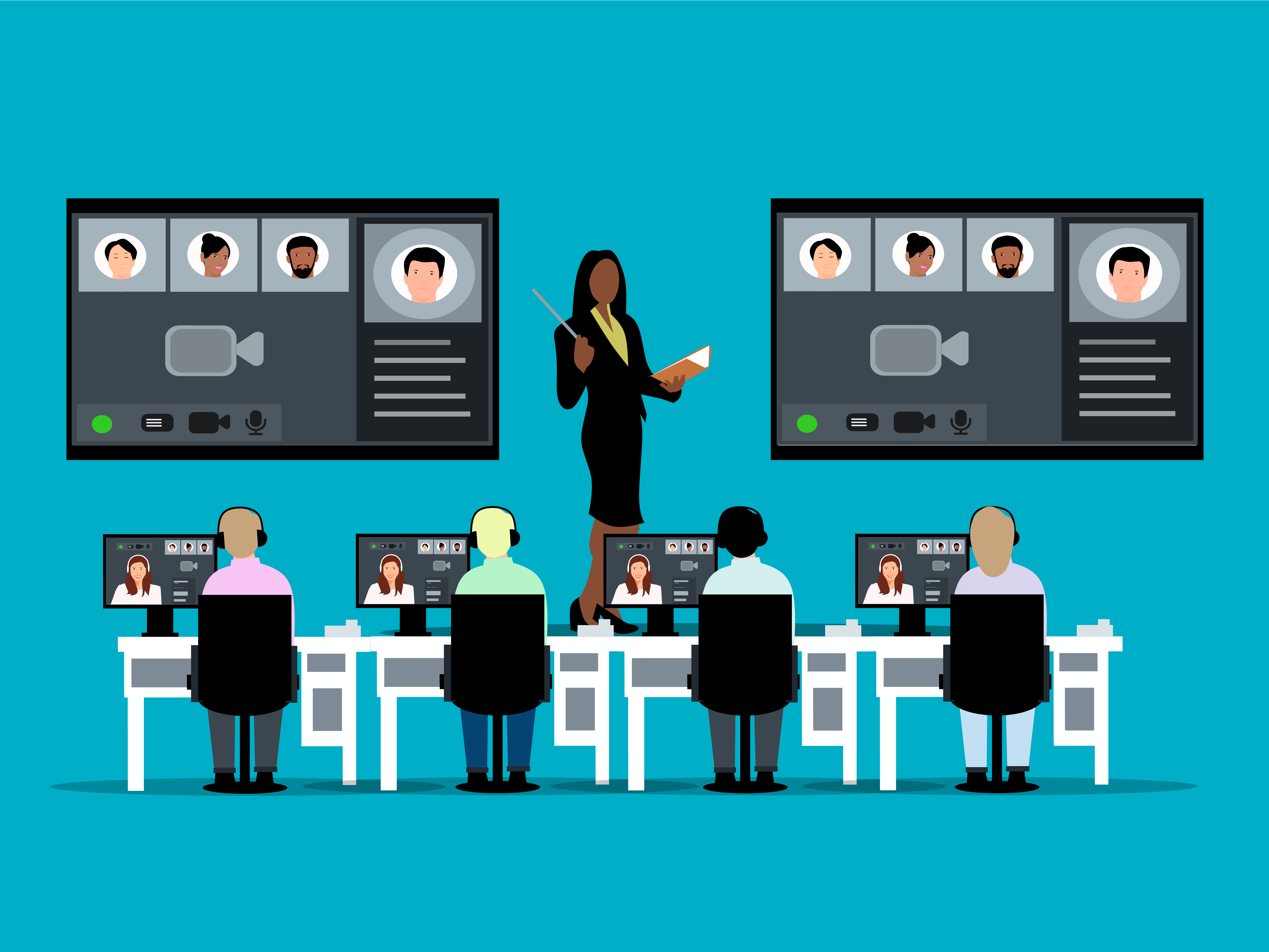At the end of this article we’ll talk about how using a virtual producer improves hybrid meetings and training sessions. But first, let’s discuss why this is important at all.
The pandemic forced various changes in how things were done. But the one topic that has, and continues to get the biggest coverage has been about the workplace. The issue is still a hot topic as employers seek to get people back to their premises, and employees dig in their heels and seek to resist returning to the old way of working, or at least seek some sort of hybrid solution.
One of the less talked about changes has been to do with meetings and in particular learning and development activities. During the pandemic, every attempt was made to continue developing people by providing lessons virtually. Certainly, the technology was there to enable people to get together online with an educator to deliver learning sessions.
The early virtual training endeavours were largely a nightmare. ‘Tedious’ would be the kindest word to describe the efforts of many trainers to deliver meaningful online sessions. Everything the training business and their trainers and educators had learned about making sessions interactive, was forgotten in a rush to deliver virtual sessions and create some revenue.
The CEO of ex2 Academy described their approach, “We were used to providing sessions that were renowned for the quality of the event, as much as the quality of the content being delivered. We were not prepared to diminish the experience now and start delivering webinars. In fact, the word ‘webinars’ was banned as we set about searching how we could provide top quality sessions, virtually.”
“Our approach was to get customers (people who attended our sessions), our faculty, and our staff together to analyse what was needed to deliver what we were looking for. The process was challenging as we looked at the technology and broke down what made a live presentation dynamic and successful, and how we could achieve that in a virtual manner”.
One element that did get in the way of creating a smooth and engaging presentation was the management of the technology. Many educators and trainers are simply not technology minded and in many cases trying to make them learn it, was not realistic.
“We decided that there was no way around it, we had to have a Producer who delivered the session like a production. Someone that could work behind the scenes supporting the presenter by changing slides, opening break out rooms and assigning people to them, monitoring the audience and letting the presenter know when someone had raised their hand or sent a question on ‘chat’.”
The results were spectacular. “The feedback from the audience was highly complimentary, as they switched off their computer and found themselves at home with no commute and having benefited from attending a live session remotely.”
‘Live’ sessions are back, but virtual sessions are still happening. Simply the cost saving of running certain courses and training sessions virtually, makes it difficult to justify returning to in-person events all the time.
But now, with the majority of employers embracing work from home, at least part of the time, the conversation needs to turn towards how that will affect corporate learning. What happens when we start to mix ‘live’ and ‘virtual’ sessions into hybrid learning programs. Just as virtual events had to deliver the results needed in the same way that the in-person events did so will hybrid events.
The challenge is that hybrid settings add a level of complexity for facilitators that didn’t exist in either exclusively live, or exclusively virtual sessions. Facilitators need to be able to ensure they connect with both types of learners equally, and they need to support them equally. And that’s a tough job.
One way to help is to adopt the practice of using a virtual producer, not only to provide that technical support, but to also become an online learner advocate to ensure they have an equal experience.
A Virtual Producer can not only enhance the delivery of a session to a whole new level, but can also make certain that remote students are not being left out. This will not only make it more professional, but most importantly, it will give the attendee an experience that enhances their learning.
Hybrid learning sessions are not going away, they are another leg in the delivery of knowledge and the development of people alongside virtual and live training sessions, live conferences, and many other ways available. In many cases, just like the workplace, a hybrid of live and virtual events will also become the norm. Make sure to deliver the best experience by including a virtual producer in your planning.




